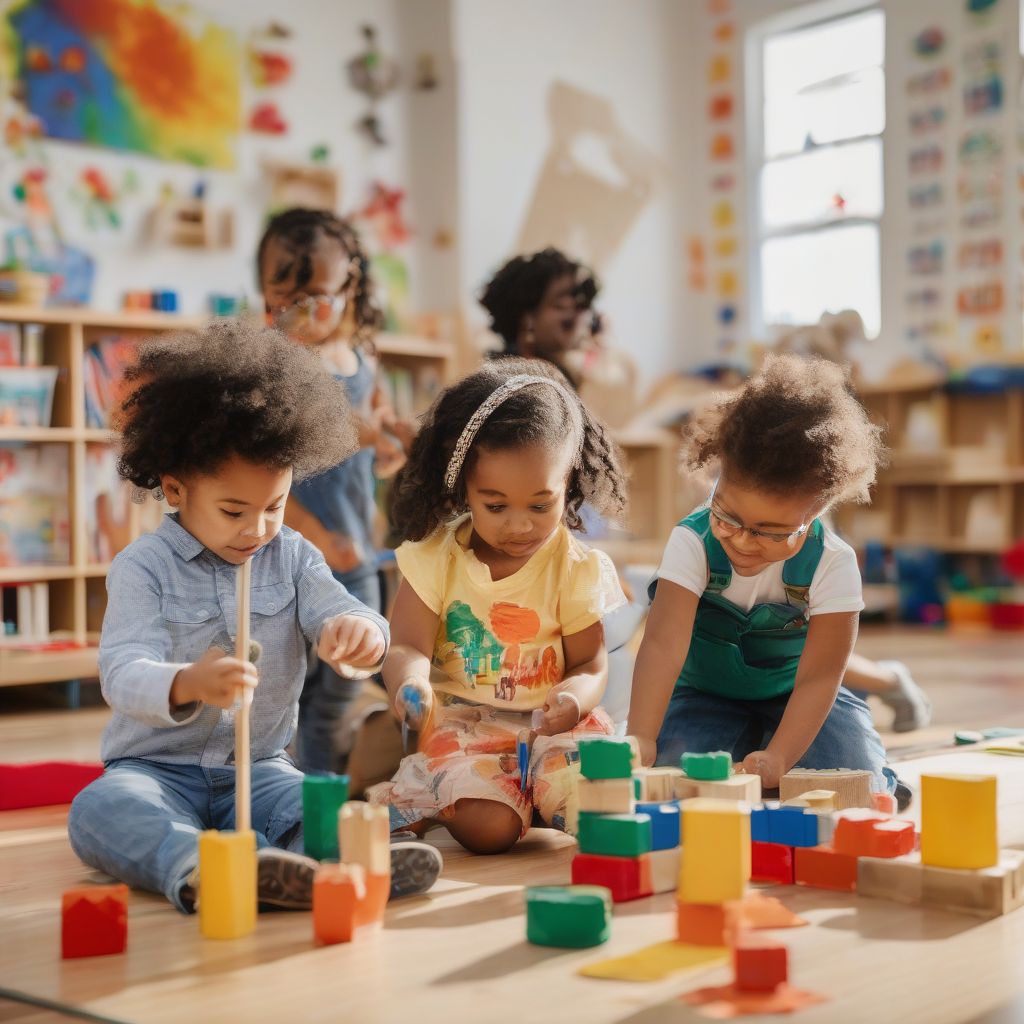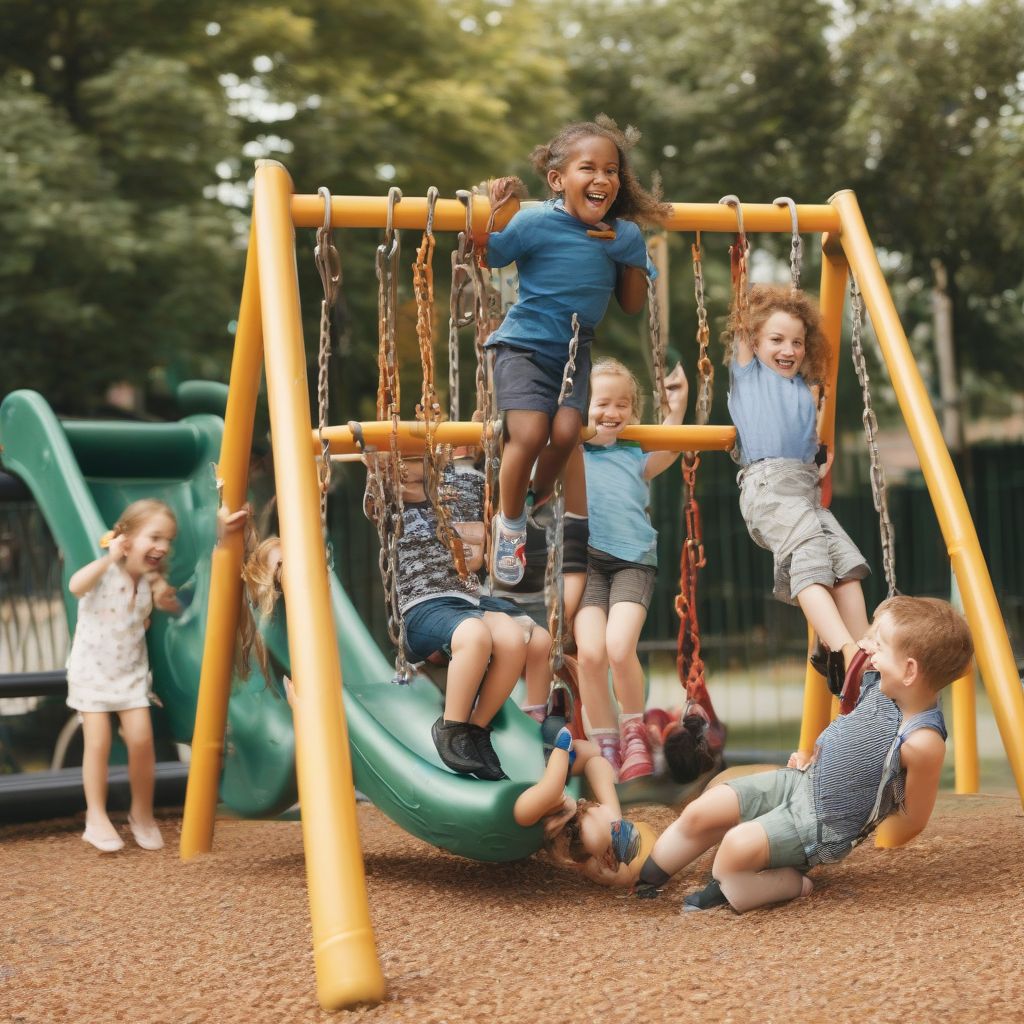Remember those carefree days of building forts, playing dress-up, and getting lost in imaginary worlds? As adults, we might reminisce about those times as simply “fun,” but for a young child, play is so much more than just a way to pass the time. It’s the very foundation of their learning and development.
Play-based learning, as it’s formally known, is a powerful approach that harnesses the natural curiosity and boundless energy of children to help them thrive across all areas. As a nutritionist and meal-prep coach, I’ve witnessed firsthand how healthy habits established early can impact a lifetime. Similarly, fostering a love of learning through play in those crucial early years can have a profound influence on a child’s future.
Why Play Matters: Beyond Fun and Games
You see, young children learn by doing, by exploring, by experimenting. Play provides the perfect avenue for this natural learning process to unfold. Let’s dive into the incredible benefits:
1. Cognitive Development: Building Brainpower Brick by Brick
Imagine a child engrossed in building a tower with blocks. They’re learning about shapes, sizes, balance, and spatial reasoning—all without even realizing they’re absorbing these crucial concepts! That’s the magic of play-based learning. It transforms abstract ideas into tangible experiences, making it easier for young minds to grasp and retain information.
Through play, children also develop:
- Problem-Solving Skills: Think about a group of kids working together to build a fort. They encounter challenges, like how to make the roof stay up or how to make the entrance big enough. This process of trial and error, of brainstorming solutions, is a crash course in problem-solving.
- Critical Thinking: Playing pretend, whether it’s acting out a story or taking on different roles, encourages children to think from various perspectives and develop their own ideas.
- Language and Literacy: The constant chatter, the made-up stories, the role-playing dialogues—it all contributes to building vocabulary, improving communication skills, and fostering a love of language.
2. Social-Emotional Growth: Learning to Navigate the World Together
The playground becomes a microcosm of the real world, teaching children invaluable social and emotional skills:
- Cooperation and Teamwork: From building a sandcastle together to playing a game with rules, children learn the importance of sharing, taking turns, and working collaboratively toward a common goal.
- Empathy and Emotional Regulation: Playing pretend often involves stepping into someone else’s shoes, encouraging children to understand and respond to different emotions. This builds empathy and helps them develop their own emotional intelligence.
- Confidence and Self-Esteem: Within the safe space of play, children can take risks, try new things, and express themselves freely. These experiences nurture their confidence and self-esteem.
3. Physical Development: Active Bodies, Active Minds
While we often associate play with running around, the physical benefits extend beyond just burning off energy:
- Gross Motor Skills: Activities like climbing, jumping, and throwing a ball help develop large muscle groups, coordination, and balance.
- Fine Motor Skills: Manipulating small objects, like building blocks, drawing tools, or even play dough, strengthens those tiny hand muscles that are essential for writing, dressing, and other everyday tasks.
- Spatial Awareness and Body Control: Navigating obstacles, judging distances, and understanding their body’s position in space are all skills honed through active play.
 Play-Based Learning in Preschool
Play-Based Learning in Preschool
Play-Based Learning in Action: Bringing It to Life
Now, you might be wondering, “This all sounds great, but what does play-based learning actually look like?”
The beauty is, it can take on countless forms! It’s about creating an environment rich with opportunities for exploration, imagination, and discovery. Think:
- Open-Ended Play Materials: Blocks, art supplies, dress-up clothes, and manipulatives that can be used in a variety of ways, sparking creativity and problem-solving.
- Sensory Experiences: Play dough, water tables, sandboxes, and other activities that engage the senses and provide opportunities for exploration and discovery.
- Outdoor Adventures: Nature walks, playground time, and simply allowing children the freedom to run, jump, and explore their surroundings.
- Storytelling and Dramatic Play: Encouraging children to act out stories, create their own narratives, and use puppets or props to bring their imaginations to life.
Nurturing a Love of Learning Through Play
As parents, caregivers, and educators, we have a vital role in creating environments where play-based learning can flourish. Here are some tips:
- Follow the Child’s Lead: Observe their interests and passions and provide opportunities for them to explore those areas further through play.
- Ask Open-Ended Questions: Instead of giving direct instructions, encourage critical thinking by asking questions like, “What do you think will happen if…?” or “How else could you do that?”
- Provide Time and Space for Unstructured Play: Allow for periods of child-directed, imaginative play without interruption or structured activities.
- Embrace the Mess: Play can be messy! Relax, let go of the need for perfection, and allow children the freedom to experiment and explore without fear of making a mess.
The Gift of Play: A Lifelong Legacy
The benefits of play-based learning extend far beyond those early years. By fostering a love of learning through play, we’re equipping children with the essential skills they need to succeed in school, in relationships, and in life:
- Resilience: Play teaches children to embrace challenges, bounce back from setbacks, and find creative solutions.
- Curiosity and a Love of Learning: When learning is fun and engaging, children develop a natural curiosity that will stay with them throughout their lives.
- Creativity and Innovation: Play nurtures imagination, out-of-the-box thinking, and the ability to see possibilities where others see obstacles.
 Outdoor Play and Learning
Outdoor Play and Learning
Embrace the Power of Play
So, let’s rediscover the magic of play! Let’s create spaces where laughter echoes, where imaginations run wild, and where children are free to learn, grow, and thrive.
What are some of your favorite ways to incorporate play-based learning into your child’s life? Share your thoughts and ideas in the comments below!
[amazon bestseller=”play-based learning”]
